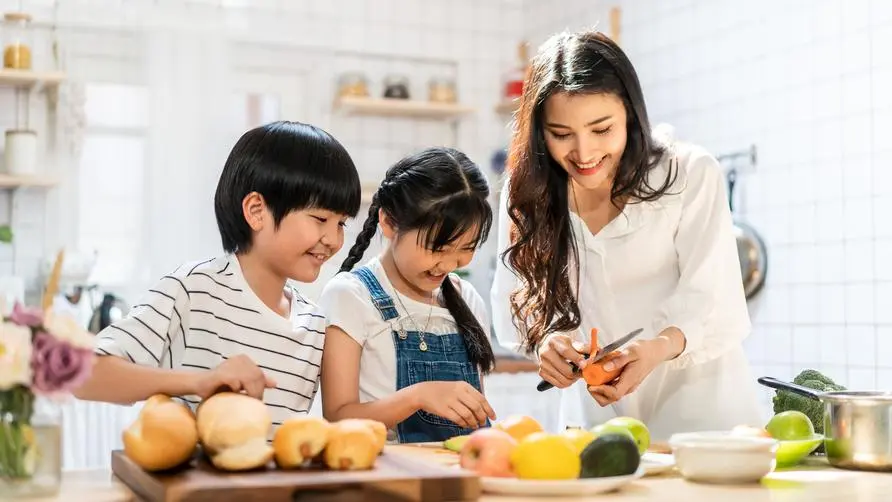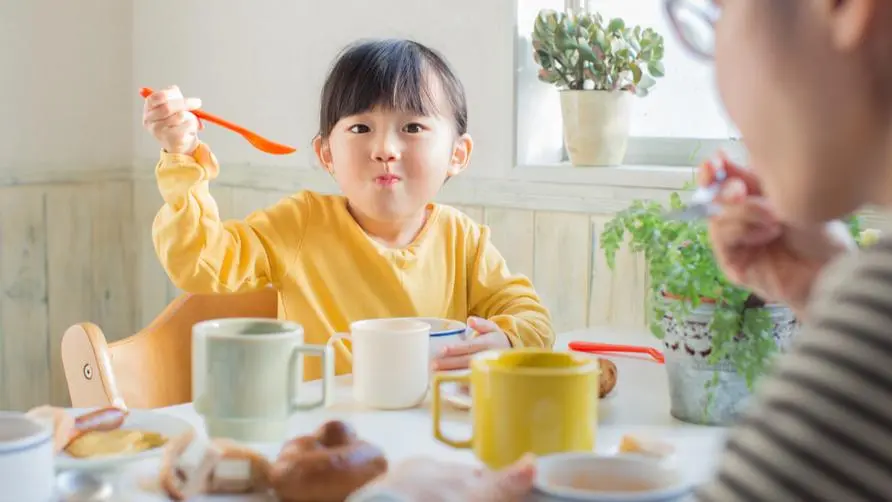What is the healthiest way for children to eat when they are "schooling at home"? Nutritionist Gao Minmin reveals the "5 must-have foods"

How can children learn to eat healthily at home? Nutritionist: 5 foods you must eat and 4 foods you should avoid
Children are learning on their own at home, leaving many parents juggling work and childcare. Nutritionist Gao Minmin said in a social post that even if children are studying at home, they still cannot easily compromise on their diet. If you want your children to maintain their protective power and prevent the invasion of the new coronavirus, you can prepare the following 5 foods for your children to supplement their daily nutritional needs:
Fruit. Mainly fruits rich in vitamin C, such as apples, bananas, grapes or tomatoes, which have extremely high nutritional value. In addition, fruits of various colors represent different phytochemicals. For example, grapes are rich in anthocyanins and tomatoes contain lycopene, which can help increase the body’s protective power.
Various vegetables. Offer your child vegetables of a variety of colors, which are often rich in phytochemicals, such as red bell peppers, carrots, or dark green spinach or cauliflower. Vegetables such as radish, shiitake mushrooms, and large cucumbers also contain high nutritional value.
Yogurt/yoghurt. It is recommended to drink a bottle of yogurt every morning and eat a portion of yogurt in the afternoon to help maintain good intestinal flora. When purchasing yogurt, you can identify products with the little green man logo, which represents its efficacy.
Whole grains. Sweet potatoes, pumpkins, taro, potatoes and other non-refined grains can be used instead of white rice and white toast to help absorb dietary fiber, vitamin B complex and minerals.
High-quality protein. Bean, fish, egg and meat are mainly based on the intake of “prototype ingredients”, which can help maintain children’s immunity.
Children need to be reminded to avoid touching the following foods:
Fried food. Fried foods rich in saturated fat or trans fat should be avoided, such as salty crispy chicken, French fries, sweet potato balls and other snacks.
Processed food. Ham, bacon, and sausages that are common for breakfast contain excessive sodium content, which may be burdensome to children’s bodies. It is recommended to replace processed foods with original foods in the daily diet.
Sugary drinks. Children’s daily sugar intake should not exceed 10g. For example, a cup of 700 cc bubble milk tea contains about 12g of “full sugar” sugar, which exceeds the daily intake limit.
Various snacks. Snacks high in sugar or salt, such as biscuits, cakes, donuts, and potato chips, may cause inflammatory reactions in children and increase oxidative stress in the body.
Are these things likely to affect children’s development? Develop “3 Habits” When Studying at Home
Nutritionist Gao Minmin pointed out that children’s wrong lifestyle may affect their development and be detrimental to their health as adults. Therefore, parents are called on to encourage their children to develop three major habits when studying at home:
Get enough sleep. While children are still growing, they still need to maintain a routine in their lives even if they cannot go to school. Staying up late may affect melatonin synthesis, thereby developing an “inflammatory constitution”, which is detrimental to children’s growth.
Develop a drinking habit. Drinking enough water can promote metabolism in the body and eliminate excess waste. It is recommended to use boiled water instead of sugary drinks or hand-shaken drinks.
Use less 3C products. If the distance between the screen and the eyes is too close, it may not only increase the chance of myopia in children, but long-term exposure to blue light will also affect sleep quality and reduce immunity. Parents are advised to limit their children’s screen time and replace mobile games or apps with actual family interactions.
Dietitian Gao Minmin reminds parents that children still need to regulate their children’s lives during the home epidemic prevention period, and do not neglect their children’s daily routine due to busy work; they can also increase home activities to enhance parent-child bonding. If a child feels unwell during home learning, it is recommended to conduct a video consultation before going to a medical institution to confirm the condition.
Further reading:





